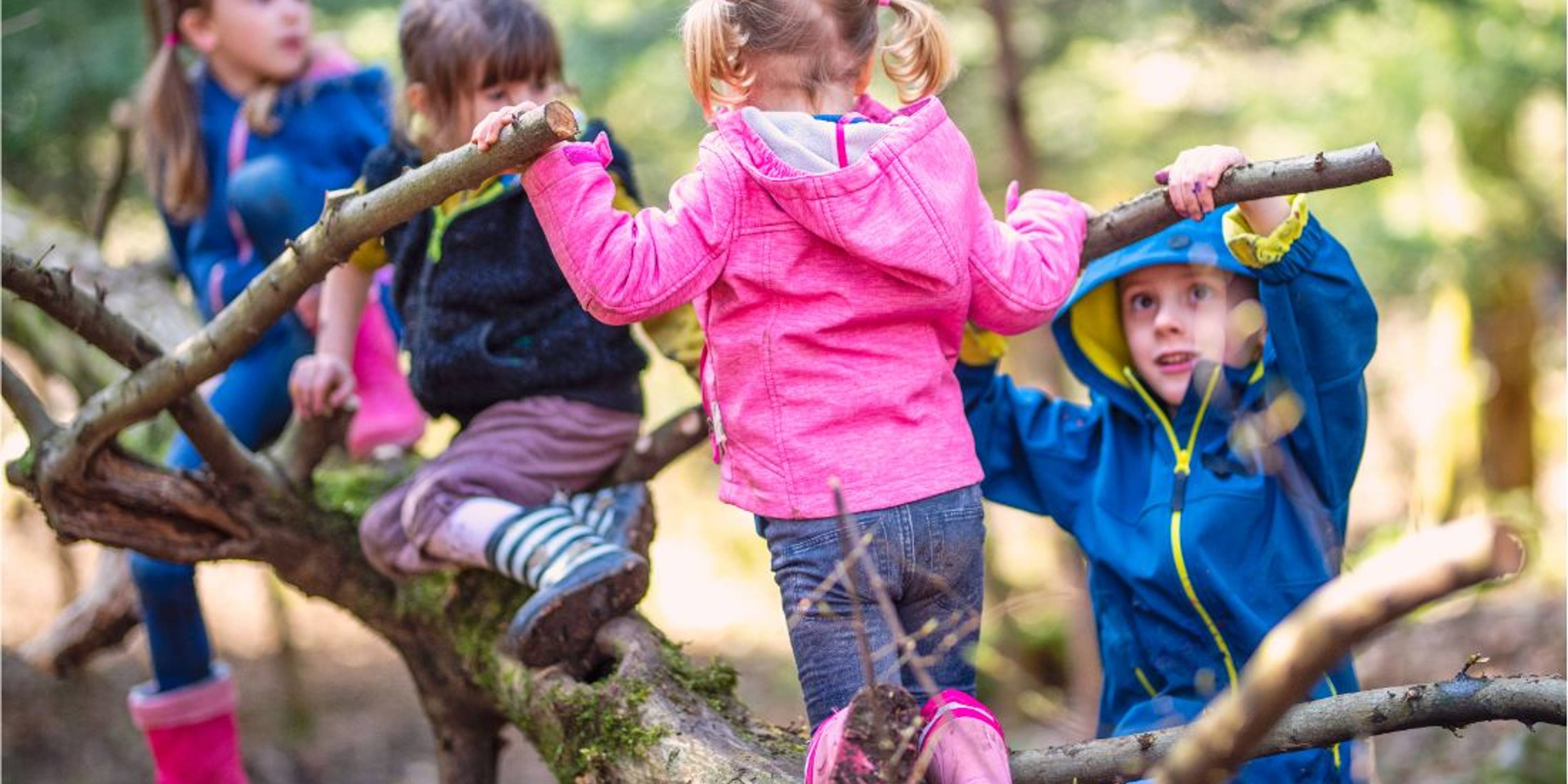February 22, 2021
Treating teen depression in schools

Whilst various psychological therapies can effectively treat depression in teens, there are barriers to accessing treatment quickly. Simon Brett and Professor Shirley Reynolds illustrate how one particular treatment, Brief Behavioural Activation therapy, can be delivered successfully in schools.
Summary
Since one symptom of depression is the avoidance or withdrawal from rewarding activities, Brief Behavioural Activation therapy is a short programme, which focuses on helping young people to engage with the things that they enjoy and value, in different areas of their life. It seeks to educate teens about the links between their behaviour and mood, helps them to identify their values and the things that matter to them and can foster a sense of achievement, agency, confidence and motivation, reducing depressive symptoms. Simon found that when young people with depression were identified through school-wide questionnaires asking short questions about their mood, and if they wanted help with some specific areas of their life, such as low mood, anxiety or bullying, this therapy could be carried out successfully, by clinicians, in schools, with very positive results.
Implications of the research
Implications for schools
Routine surveys about mental health needs in secondary schools are a great way to identify children who need help and directly asking pupils whether they would like help is effective. Using this sort of tool can help to foster a non-stigmatising school culture around mental health and wellbeing and can encourage help-seeking behaviours in young people. However, the challenge is to ensure that effective support is in place once this need has been identified. Simon’s team are still processing the full results of the trial to see if this sort of treatment could be rolled out more widely. More generally, schools should encourage their pupils to maintain hobbies and interests alongside their schoolwork, to build resilience around pressures in their lives, such as exams.
Implications for parents
Cultivating self-knowledge, agency, purpose and setting small achievable goals can be truly impactful as a means of alleviating teen depression. For all parents, the most important thing is to attune to your child’s interests and co-create coping strategies based on their individual values.

Simon Brett
PhD candidate and child and young person psychological wellbeing practitioner
After completing a Masters of Psychological Theory and Practice at Aarhus University, Denmark, and the University of Reading, UK, Simon trained at the Anxiety and Depression Research Clinic for children and young people and was appointed as a child and young person psychological wellbeing practitioner, working clinically at the University of Reading and in local secondary schools. In 2018, he began a Cotutelle PhD at Macquarie University, Sydney, Australia and the University of Reading, UK, researching how young autistic people navigate the social world. He is committed to understanding the distinct challenges and opportunities that face autistic and non-autistic young people and is dedicated to supporting the mental wellbeing of children, young people and adults.
Simon Brett
PhD candidate and child and young person psychological wellbeing practitioner
Scroll our research gallery

Dec 15, 2025
Crossing the line into cybercrime
As the most digitally connected generation so far, young people today face new challenges. Our latest Researchers of the Month, Professor Davidson and Dr Farr, have found that in the last decade, an increasing number of young people (particularly young men) have committed serious cybercrime offences, particularly hacking and money laundering. Their new book, written following a large research project funded by the European Union’s Horizon 2020 research and innovation programme, seeks to understand the drivers behind this trend. It explores a range of potential factors that may lead young people to engage in risky online behaviours, and to identify effective pathways for prevention.

Nov 16, 2025
Supporting Children’s Use of AI
Children and young people are now growing up surrounded by AI, and the landscape is shifting fast. In the UK, recent data from Ofcom and Internet Matters suggests that around half of children aged 8–17 regularly use generative AI tools such as ChatGPT, Bard or Snapchat’s MyAI. Many describe these interactions as feeling like conversations with a friend. A recent report from Common Sense Media found that 33% of teens had actually chosen to talk to an AI companion instead of a real person about something important or serious. Whether children are asking voice assistants to answer their questions, relying on chatbots for bedtime stories, using learning apps for revision or engaging with large generative AI models, it’s essential to remember that most of these systems were built with adults in mind, not children. They often assume levels of attention, memory and emotional maturity that younger users simply don’t have. Even older children and teenagers, who increasingly use AI as a supportive confidante (often without adult supervision or knowledge), are still learning to navigate boundaries around trust, identity and emotion. Our latest Researcher of the Month, Dr Nomisha Kurian, wants this to change. She has developed a new framework called Developmentally Aligned Design (DAD), which outlines how AI can be built with children’s needs, vulnerabilities and strengths at its core. She also chatted to us at Tooled Up, sharing practical tips on recognising when children may be relying too heavily on AI for emotional connection, how to talk to them about healthy boundaries, and how parents and educators can help children and young people use AI tools safely, creatively and critically.

Oct 16, 2025
Algorithmised Girlhood: Teenage Girls and TikTok
As part of the early stages of her PhD study, our latest researcher of the month, Chiara Fehr, ran several focus groups about experiences of TikTok with eight 17 year old girls. Using creative methods, such as ‘TikTok show and tells’ a collaging session and a utopic mapping exercise, Chiara is exploring whether dominant narratives around growing up in a digitised world reflect the real life experiences of teens, and has summarised her findings so far in a recent article.
![“[They use devices] alllllllll day long”. What do children think about our tech use?](https://cdn.sanity.io/images/jxfh43in/content-prod-d2c/79f219275088655f59590f61ff29b6bc8b0d77f8-1100x733.jpg?w=3840&h=1920&q=70&fit=crop&crop=center&auto=format)
Sep 09, 2025
“[They use devices] alllllllll day long”. What do children think about our tech use?
We're all used to reading about children and young people's increasing use of digital tech. But what about adults' use? And what impact might our tech use have on family life? Parents today are spending an unprecedented amount of time on their devices. One study found that parents spend an average of nine hours per day engaged with screen devices. Over four hours of this is on smartphones, averaging 67 phone checks per day. Despite children's central role in family life, their voices and perspectives on the device use of the adults around them have been largely neglected in research. Along with colleagues, our latest Researcher of the Month, Professor Cara Swit, has published a fascinating study exploring the experiences and perceptions of children aged six to nine about their parents’ device use at home and its impact on them.

Aug 13, 2025
Students’ views on smartphone bans
In recent years, banning or restricting children’s access to smartphones and social media has grasped the attention of policy makers, schools and parents. A number of countries, including France, Turkey, Norway, Sweden, and regions of the US and Canada have introduced laws, policies or guidance for schools to ‘ban’ or heavily restrict the use of phones. Within Ireland, in 2024, the Minister for Education announced her intention to introduce smartphone bans in post-primary schools, whilst at the same time acknowledging that individual schools are best placed to decide on the scope and scale of restrictions for their students. Whilst these bans aim to protect children from harm, and teachers often anecdotally report seeing benefits, evaluations of existing research highlight a lack of evidence on their efficacy. At the moment, we simply don't know enough about the impact of bans. Evidence is hampered by the fact that technological developments and technology use is moving at a faster pace than research. Some studies suggest that bans are beneficial to academic outcomes and mental wellbeing. Others suggest no effects. However, many studies have methodological weaknesses, use small samples or retrospective data, and can't ascribe causal mechanisms. Our latest Researcher of the Month, Dr Megan Reynolds, has recently published a paper which explores young people's perspectives and experiences of smartphone bans in their schools. Unlike most previous research, it centres student voices in this high profile issue.

Jul 14, 2025
Do teens with mental health conditions use social media differently than their peers?
As Luisa Fassi, our new Researcher of the Month, comments, "The link between social media use and youth mental health is hotly debated, but hardly any studies look at young people already struggling with clinical-level mental health symptoms". In fact, Luisa's large systematic review and meta-analysis found that only 11% of papers published on the topic since 2007 focused on young people with clinical conditions. Her review also showed that the data used to evidence mental health conditions in these existing studies is not always strong or especially robust. Many report links between social media and mental health on the basis of short self-report questionnaires, where young people are asked about symptoms. Whilst this wasn't found as part of Luisa's review, it is also the case that very few papers in the field differentiate between different mental health conditions, or examine different symptoms or conditions (such as anxiety, ADHD or eating disorders) in isolation. To address this research gap, Luisa and colleagues have recently published a fascinating and nuanced paper. It analyses both quantitative and qualitative dimensions of social media use from a nationally representative survey of 3,340 teens in the UK aged between 11 and 19 years old, which was conducted by NHS Digital in 2017. Rather than gathering mental health data from self-report questionnaires, the young people in the survey underwent a full clinical screening, which included interviews with the young people, their parents and teachers. Information about social media use came from questionnaires completed by participants. They were not asked about specific platforms. Luisa used this data to gather novel insights into how social media and mental health are related in teens who both meet and do not meet diagnostic criteria for a wide range of mental health conditions. The study does not establish any causal links, but it does reveals a range of differences between young people with and without mental health conditions when it comes to social media.

Jun 17, 2025
Navigating the feed: younger adolescents' reflections on algorithmically curated social media
Our latest researcher of the month, Roxana Pomplun, has investigated the interactions, experiences and perceptions of younger adolescents, aged 11, 12, and 13, with algorithmically curated platforms such as TikTok, YouTube Shorts, Spotlight on Snapchat and Reels on Instagram. These kinds of platforms use algorithms to personalise and tailor feeds, harnessing user data to suggest content that the individual is most likely to be interested in and engage with. As such, young people have little control over what they are seeing in their feeds. Tech companies are not yet required to be transparent about the data that they are collecting, but it tends to include demographic information such as age, gender or location, along with use patterns. Whilst these sites dominate the digital lives of tweens and teens, until now they have received little dedicated research attention, particularly in relation to younger users, with most existing studies focusing on older teens. Whilst we know that most social media platforms have age limits of 13, we also know that many younger children are active users, particularly of algorithmically curated platforms like TikTok and YouTube Shorts. Given that early adolescence is a life phase marked by critical neurological development, identity development and heightened susceptibility to mental health issues, deepening our understanding of how younger adolescents engage with social media is vital. Roxana's qualitative research, where a group of young people eloquently explore their own experiences and perceptions, broadens our knowledge of social media use within an age group that appears increasingly aware of the digital influences shaping their online experiences, yet which is still in need of support to fully navigate these ecosystems.

May 15, 2025
Looking beyond smartphone bans
Over the last year or so, there has been a surge in public concern around smartphones and social media. Banning or restricting children’s access to smartphones and social media has grasped the attention of policy makers, schools and parents. A number of countries, including France, Turkey, Norway, Sweden, and regions of the US and Canada have introduced laws, policies or guidance for schools to ‘ban’ or heavily restrict the use of phones. In the UK, there are proposals to raise the age of ‘internet adulthood’ from 13 to 16, and to ban smartphones in schools. The third reading of a private members’ bill on this topic will be heard in parliament in July. Whilst these bans aim to protect children from harm, recent studies highlight a lack of evidence on their efficacy. Along with a team of international experts, our latest Researcher of the Month, Professor Victoria Goodyear, argues that, in isolation, banning smartphone and social media access fails to equip children for healthy use of technology. She suggests that there is a need to shift debates, policies and practices away from a sole focus on restricting smartphone and social media access, toward an emphasis on nurturing children’s digital skills for healthy technology use, and a rights-respecting approach which is underpinned by age-appropriate design and education.

Apr 22, 2025
Encouraging adventurous play in the preschool years
Tune into our podcast interview with April's researchers of the month here. As well as providing numerous opportunities for exploration, joy, and expression, outdoor and adventurous play - the type of play that allows children to take age-appropriate risks - is associated with a range of positive health behaviours and outcomes. Yes, we're talking about the kind of play that might leave us adults with our hearts in our mouths at times, as children start to disappear up a tree, or engage in a rough and tumble game of chase. But its benefits are wide-ranging and known impacts include increased levels of habitual physical activity alongside better mental health and positive mood. In 2019, Dr Hesketh was involved in the creation of physical activity guidelines in the UK, which explicitly note the importance of outdoor play for children in the preschool age group. We know quite a lot about the play habits of school-aged children, but until now, have had significantly less data on their younger counterparts. Our Researchers of the Month, Dr Kathryn Hesketh and Professor Helen Dodd set out to discover how much time preschool-aged children spend playing in a range of indoor and outdoor spaces, and how adventurously they are playing within them. In the first national survey of play in children of this age, they asked over 1000 parents of two to four year olds about their children’s play habits, finding that, on average, children aged two to four spend around four hours per day (outside of educational settings) playing. Just under 50% of this was spent playing outdoors. Their findings shed interesting light on some inequalities in play, even in the youngest age group, which may exacerbate existing inequalities in health.

Mar 17, 2025
Fostering a school culture against bullying: the KiVa Programme
Bullying is an extremely important public mental health risk. Around one in five primary school children report being bullied at least weekly. Children who are bullied are more likely to experience depression and anxiety, and are at heightened risk of mental health issues in adolescence and adulthood. Whilst schools in England and Wales are required to have anti-bullying policies, rates of bullying remain high. Bullying is preventable, but schools need more help to tackle it. Typically, school policies focus on how to handle bullying once it happens. However, evidence suggests that a comprehensive approach involving the entire school to prevent bullying, alongside clear strategies for addressing confirmed cases, is the most effective way to tackle the issue. KiVa is one such whole-school approach, developed in Finland by Professor Christina Samivalli. A large study in Finland which involved 28,000 primary school pupils found that adopting the KiVa programme in Finnish schools significantly reduced bullying and improved children's mental wellbeing. The programme has since been rolled out nationally by the Finnish government and ongoing use of KiVa in Finnish schools is associated with year-on-year incremental reductions in bullying. Along with colleagues, our researcher of the month, Professor Judy Hutchings OBE, has tested the effectiveness of the KiVa Programme in UK primary schools. The study involved over 11,000 children in Wales, Birmingham, Oxfordshire and Devon, and showed a 13% reduction in reported rates of bullying when compared with existing school approaches to tackle bullying.


